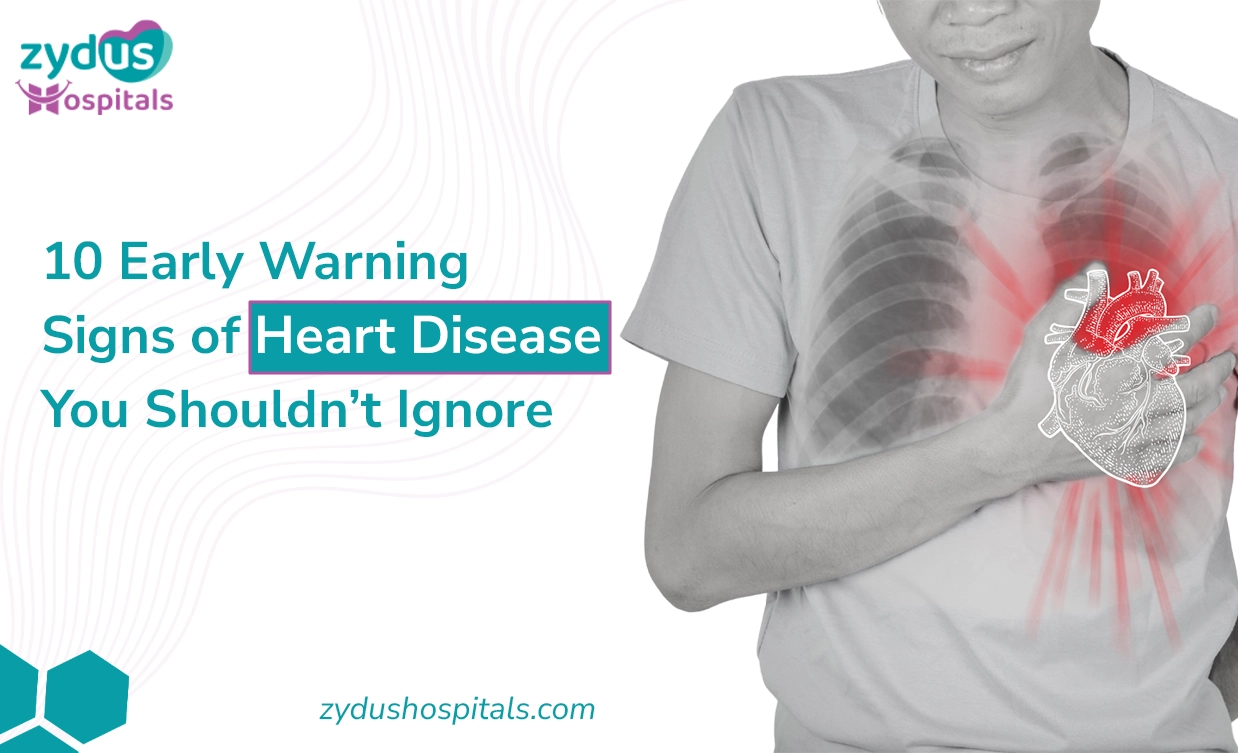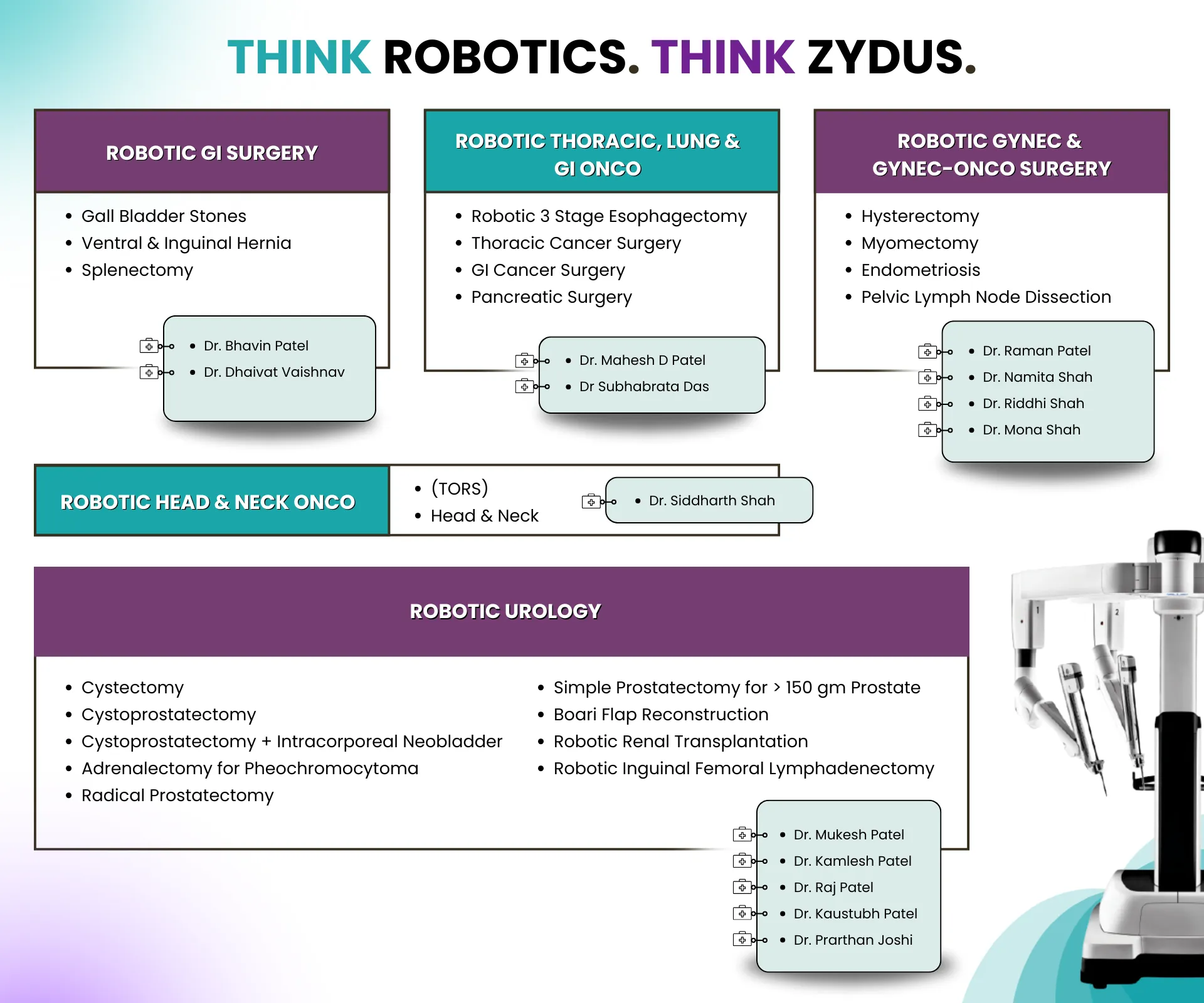Recognize these symptoms and seek timely cardiac care
Introduction
Heart disease doesn't always come with any warning signs, like sharp chest pain or collapse. Normally, the signs are subtle, ignored, or mistaken for something else. Because of this, its early detection of heart disease. If you can recognize the early signs of heart disease can make all the difference. Experts strongly suggest that awareness is the first step to prevention.
In this blog piece, we are sharing some common early warning signs of heart problems. Learn how your body might be signaling you these common heart disease indicators to seek medical help.
Why is Early Detection of Heart Disease Important?
Heart diseases can be fatal. The World Health Organization has estimated that these diseases alone account for 17.9 million lives lost per year. This makes cardiovascular disease the leading cause of death globally. Early detection and early intervention can save lives. This makes cardiovascular disease the leading cause of death globally. Early detection and early intervention can save lives.
When individuals seek medical attention for the early symptoms of heart disease, they reduce their risk of long-term damage. Detecting heart disease early is important not only to avoid a heart attack, but also to avoid serious complications of heart disease, including heart failure, arrhythmias, and stroke.
Many people do not recognize that heart disease can develop in silence, which is why it is so important to look for even the tiniest signs.
1. Chest Discomfort or Pain
This is the most recognized symptom of heart problems, but it is often misinterpreted.
Type of pain:
One may experience pressure, heaviness, or burning, which can easily be confused with indigestion or stress. Usually, there is a sharp and acute pain, also known as angina pectoris. Even a radiating pain in the left shoulder or arm can be a warning sign.
Duration:
Do not disregard continuous pain, especially during physical activity or stress. If the discomfort persists for longer than a few minutes or keeps returning, be sure to get it checked by a specialist.
If this discomfort is frequent, then it may be one of the cardiovascular disease symptoms. Don't wait for it to worsen; rush for medical help immediately.
2. Shortness of Breath
If you experience shortness of breath or feel fatigued even after very little activity, or even while resting, it is an indicator for concern.
What does this mean?
Shortness of breath commonly occurs when the heart is not pumping blood as efficiently as necessary, which may then cause extra fluid to build up in the lungs. This is usually seen with significant fluid accumulation, and is often associated with heart failure, and in some cases, blockages are observed within the coronary arteries.
When to be concerned?
Shortness of breath occurs in conjunction with the feeling of fatigue and/or pain in the chest. If this occurs suddenly with no prior respiratory history, seek medical help.
If you find yourself struggling to breathe, you may be experiencing symptoms indicative that your heart is not pumping blood in the requisite manner.
3. Irregular Heartbeat/Arrhythmia
If one experiences palpitations (irregular, fast, or missed heartbeats), this could be more than anxiety.This is primarily due to the issues in the heart’s electrical system that affect heart contraction, and when these signals are disrupted, it can lead to arrhythmia.
Potential causes:
The underlying causes could be many, but are largely attributed to congenital heart defects, substance abuse, heart conditions like valve problems, coronary artery disease, lifestyle factors, and more.
Watch for:
Episodes that last longer than a few seconds or frequently recur. Arrhythmia can sometimes indicate an underlying problem that could result in a heart attack or stroke.
If the heartbeats are frequently irregular, it can increase the likelihood of cardiac complications in the future if left untreated.
4. Unexplained Fatigue
If you feel tired after a full night's sleep or from your usual activities, you might be experiencing fatigue.
Why should you care?
Fatigue can be one of the first symptoms of heart disease, especially in women. It can be caused by the heart's inability to pump enough oxygenated blood to the body.
Could also be:
Dizziness or giddiness, due to a reduced blood flow from the heart, can also lead to fatigue and can be a warning sign.
If fatigue is consistent, consulting a medical specialist is a must.
5. Swelling in Legs, Ankles, or Feet
This is a frequent indicator of heart disease; it is referred to as peripheral edema.
Cause:
Poor blood pumping can result in fluid retention in the lower limbs. If the heart cannot pump blood well, blood accumulates in the veins of the legs, causing swelling.
Signs:
Chronic puffiness in the lower limbs, or difficulty in wearing shoes, and noticeable indentation when one presses on the skin.
If you notice chronic swelling in your legs or feet, especially after prolonged sitting, a consultation with a cardiologist is a must.
6. Pain in the Neck, Jaw, Throat, or Back
In addition to chest pain, one may feel pain in the neck, jaw, back, and throat. This can also be an underlying cause of heart disease.
Action:
Ignoring such symptoms can be a serious health hazard, especially if they are recurring. If you notice these symptoms, consulting a specialist is advisable.
7. Dizziness/ Low Blood Pressure
Dizziness can occur when blood pressure suddenly drops, as the heart is unable to pump enough blood to the brain.
Risk:
Dizziness could also mean low blood pressure or hypotension, which can increase the risk for falls, heart problems, stroke, and other heart issues, potentially leading to serious cardiovascular diseases.
When is it urgent?
If you are constantly fainting or feeling lightheaded, along with other symptoms, seek medical help immediately.
8. A Continuous Cough or Wheezing
A prolonged cough with pink or frothy sputum can be a suggestive symptom of chronic heart failure.
Why?
A continuous cough or wheezing may be associated with pulmonary edema, fluid leaking into the lungs.
Not just a common cold:
If the cough is persistent despite being on medication, it is advised to go for a specialist cardiac consultation, as it may be an underlying symptom of a cardiovascular disease.
9. Indigestion, Nausea, or Vomiting
These symptoms are usually associated with stomach or gastrointestinal problems, but they can also be early signs of a heart attack.
Easily missed:
Many patients may misunderstand these symptoms as a stomach infection or indigestion. However, patients with heart disease may have compromised blood flow to their gut, leading to chronic nausea and indigestion.
Important point:
When these symptoms are present along with fatigue, low blood pressure, dizziness, jaw, back, and shoulder pain, breathlessness, nausea or vomiting, it is advisable to seek medical help immediately.
10. Extensive Sweating
If you are breaking out in a cold sweat for no clear reason, it could be one of the warning signs of underlying heart health.
Do not ignore it
If cold sweats are experienced along with nausea, light-headedness, or chest pain, it could be one of the telltale signs of a cardiac emergency.
Do not ignore it:
The symptoms typically manifest when the heart is under stress and it cannot function to its full capacity. If one notices these signs, seek medical help immediately as they may be signs of an impending cardiovascular event.
How Should You Respond to These Symptoms?
We recommend:
- Monitor patterns: Track when symptoms occur, their intensity, and duration. This information can be helpful for your doctor.
- Seek evaluation: Make an appointment with a cardiologist if there are symptoms.
- Don't wait: Prompt medical care may avoid serious complications or even save a life.
Zydus Hospital: Why Choose Us for Your Heart Health?
Zydus Hospital is one of the Best Cardiology Hospital in India and has the right technology and cardiologists with great expertise to make an early diagnosis and treat all heart diseases. Our experts provide:
- 24/7 emergency care for cardiac patients
- Complete cardiac check-ups
- Personalized treatment plans
- State-of-the-art cath labs and surgical units
When it comes to your heart, timely action is a must.
Final Take
Understanding the early signs of heart disease can significantly improve your chances of preventing a major cardiac event.
If you or someone you love has any heart disease symptoms, make an appointment with a specialist right away.
Reaching out in time is the most important aspect of cardiac health, and Zydus, being the best cardiac hospital, understands its significance to the core.





